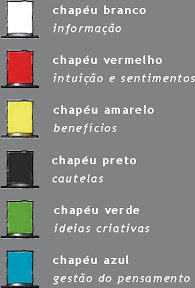
Fonte: Eureactiv
Creativity means much more than just arts, dance and painting, and thus Europe urgently needs a figure to take the issue seriously if it is not to fall behind its global competitors, Edward de Bono, who has been appointed ambassador of the upcoming European Year of Creativity and Innovation 2009, told in an interview.
Professor Edward de Bono is a leading authority on creative thinking, innovation and the direct teaching of thinking as a skill. Education Commissioner Jan Figeľ' recently appointed him as ambassador for the upcoming European Year of Creativity and Innovation 2009.
You have established a World Centre for New Thinking in Malta. What sort of new creative thinking does Europe need to tackle the current economic and financial crisis?
With regard to the economic crises, there are some very strong ideas, which we need to develop. I suggest a spending currency, which has an exchange rate against an existing currency, which we can change and we can get more spending money that stimulates the economy. And then retailers can change it back into ordinary currency. We might need a savings currency, while we need a property currency. These are big ideas which could make a huge difference to the existing economic crunch.
How satisfied are you with the recent EU actions?
I haven't followed it in detail. Generally, people talk about the stimulus to the economy but are not really clear what that is – just public words and bailing out the banks, etc.
How does the creative industry have to be set up if it is to help Europe to remain competitive?
In terms of price and competence, we are not going to be much better than the Chinese or the Indians. It is a matter of continuously creating new values. And that needs creativity.
What are the main hurdles to unlocking creativity and innovation in Europe?
There needs to be someone who takes it seriously. I think businesses ought to take creativity as seriously as they take finance and legal affairs. We need someone in every organisation who is directly responsible for creativity and new ideas, who organises training and puts together lists of new thinking, who listens to new ideas, who transmits them and stands behind them. Otherwise you risk having an individual innovator who doesn't have the political muscle to make things happen and nothing happens.
How confident are you that the European Year of Creativity and Innovation could actually achieve something?
It could maybe trigger a start. But the whole point is that we need to take creativity seriously and there is always the danger that when people are talking about creativity they are talking about arts, dance, painting, etc. Yes, this is important but the creativity of ideas and change makes the process happen. Every bit is important. But in most languages, certainly in English, there is no separation between an idea and creativity and artistry. And this is a big difference. The schools say they teach you creativity and they teach a bit of finger-printing and dancing. That's good. But it is not the same as ideas and creativity.
Do you think there is also a different mentality in Europe compared to the US or Japan when it comes to creativity?
Let me give you an example. My first book in Japan sold more copies per head than love stories in America. There is huge interest. In America, they have quite old-fashioned ideas about creativity. They think it is just about feeling good and sitting around and brainstorming some answers. And it is not.
Can the mentality also be changed in Europe?
With the right leadership, it could. As an ambassador for the European Year of Creativity and Innovation, you have quite an exponential role. What does this role mean for you and how confident are you that you can actually achieve something? It gives me a certain platform to say these sorts of things, whereas if I said the same things as an individual it would not have the same effect. I think it is a good and useful thing and I intend to make full use of it.
Ver artigo no website do Ano Europeu da Criatividade e Inovação


